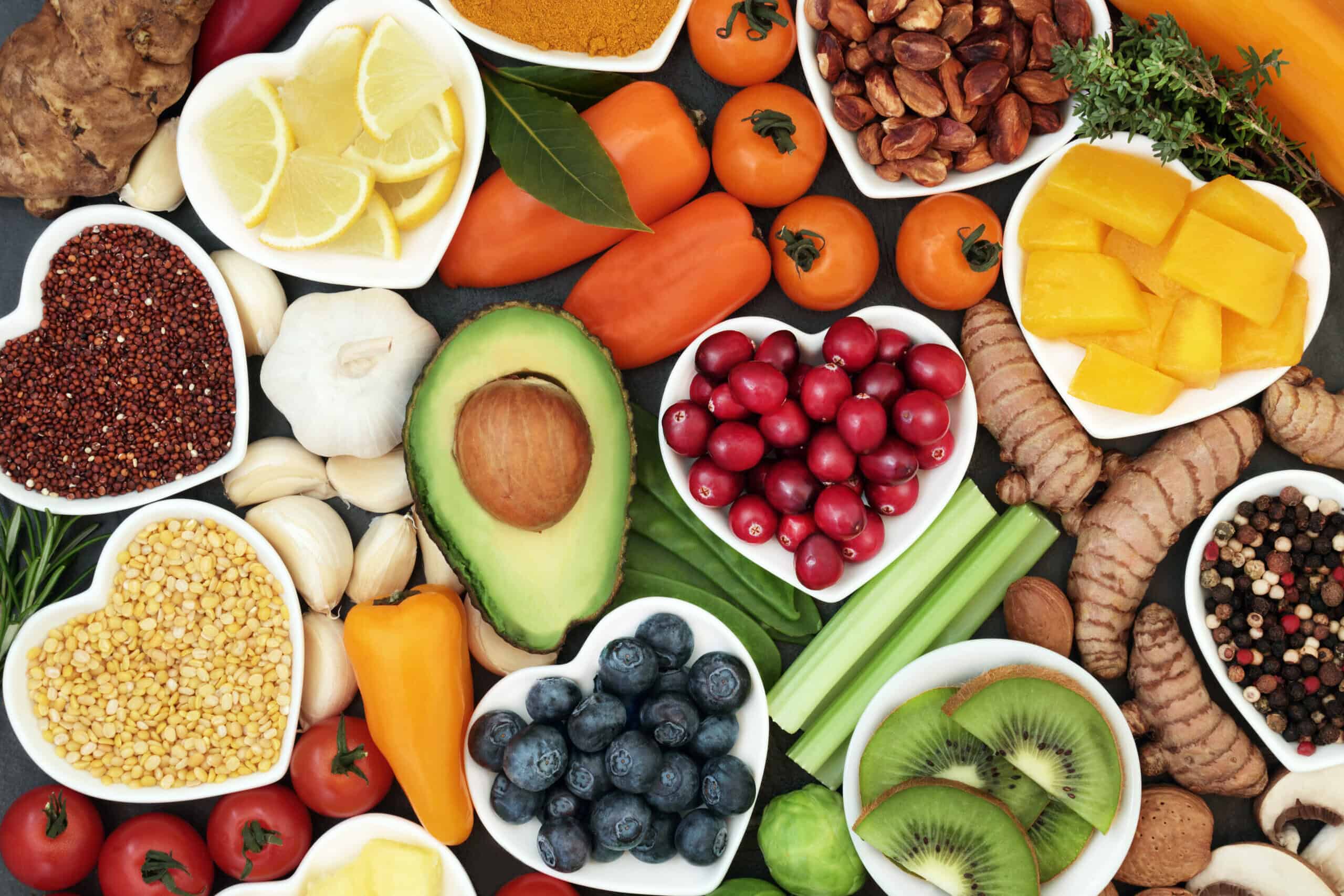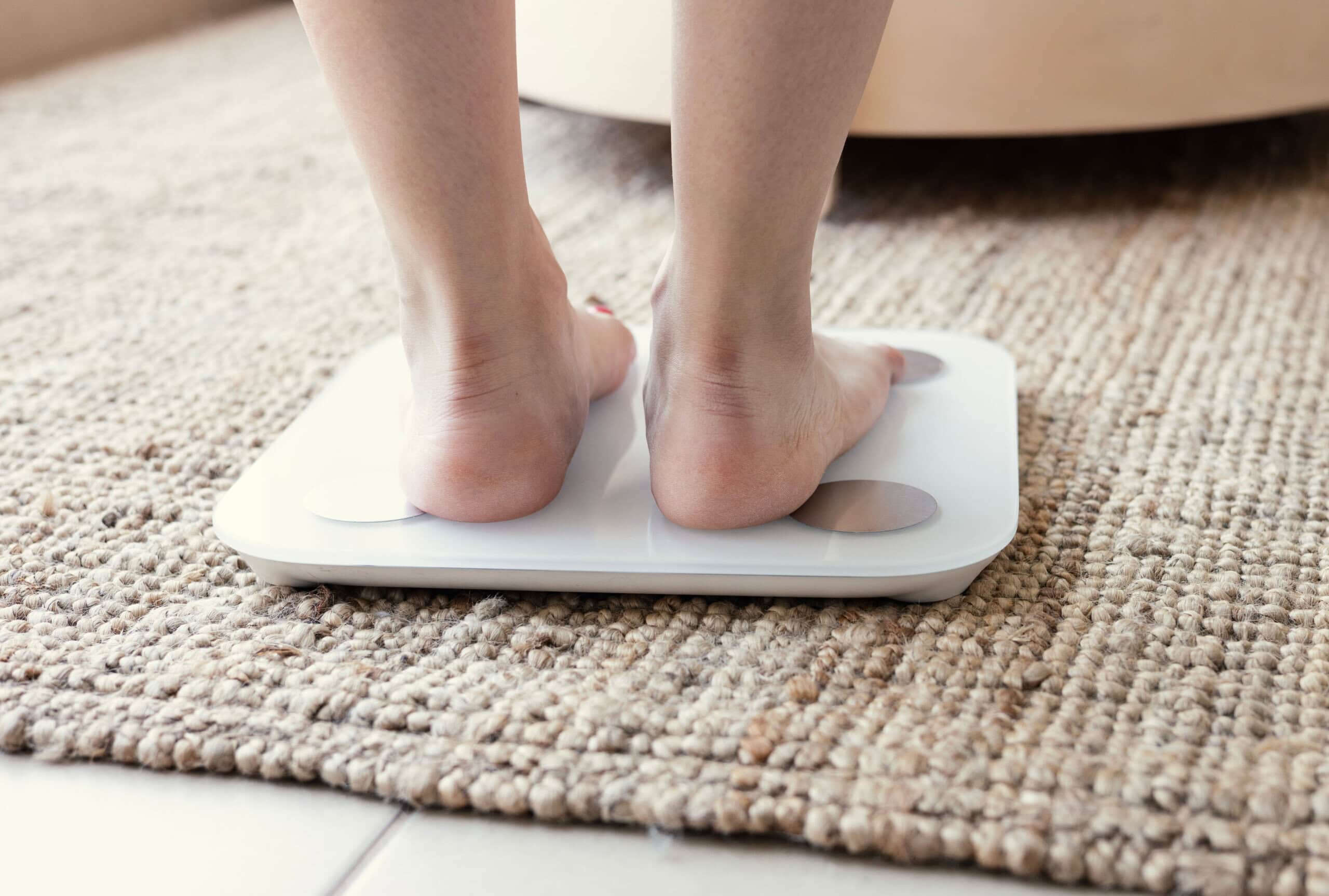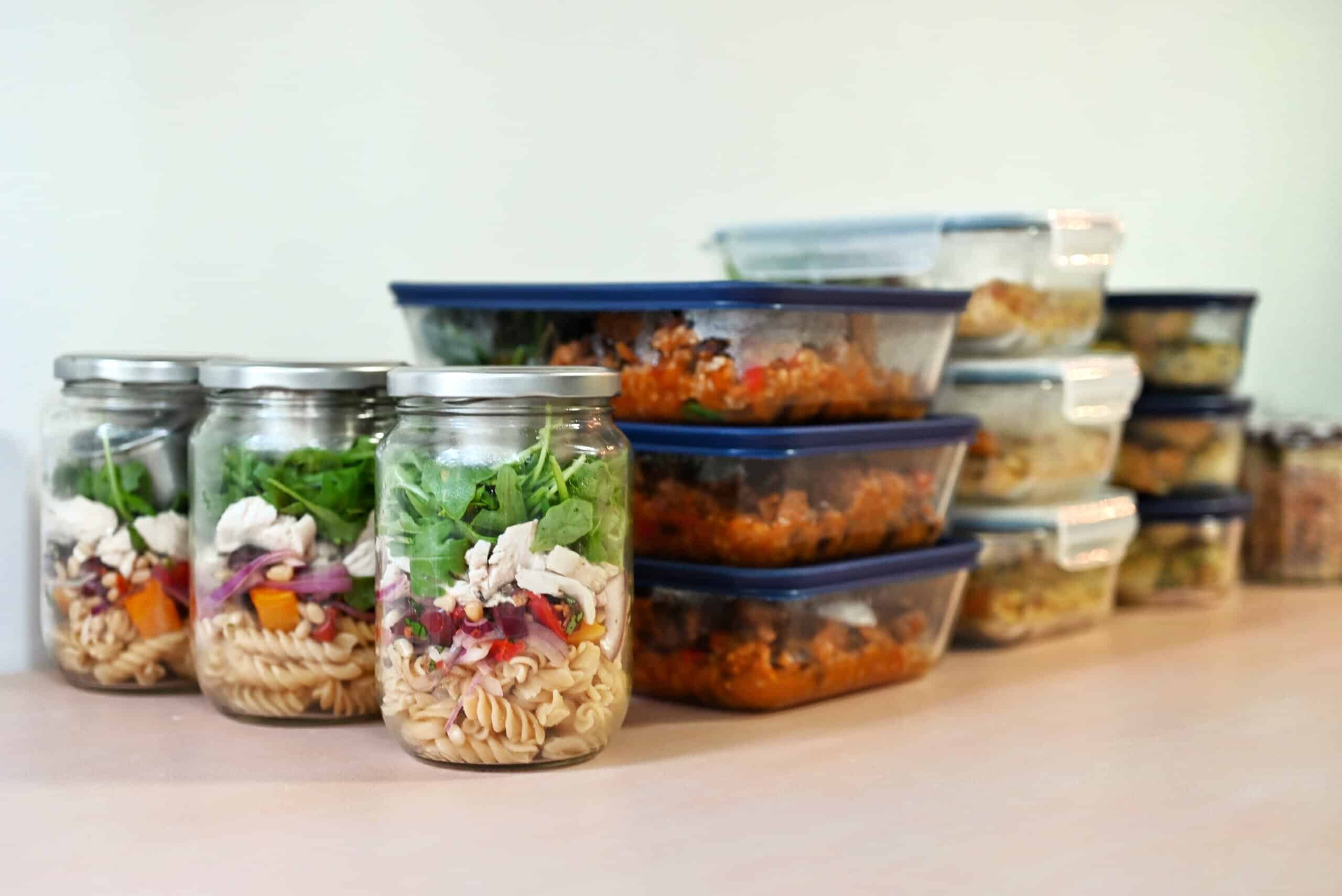How to lose weight after menopause
Are you one of the many women who have noticed a few extra postmenopausal pounds? Or, are you wondering how to lose weight after menopause when it’s seeming more difficult than usual? Then, you’re not alone.
As your oestrogen levels decrease, your metabolism slows down which can result in weight gain, even if you haven’t changed the way you eat or move. This can feel helplessly confusing and frustrating, but thankfully there are some key steps you can take to limit this menopause phenomena.
Why can weight gain occur during menopause?
Menopause is associated with significant changes in body composition and with the accumulation of visceral or peri-abdominal fat (otherwise known as belly fat). Studies have indicated that it is typical for general weight gain to occur during and after menopause.[1] Additionally, while there is typically an ongoing gain in fat mass, there is also a loss of lean mass, which can continue to occur for several years after the menopause.[2]
There is not just one reason that weight gain can occur during menopause. While it’s true that the drastic drop in hormones can negatively impact glucose and lipid metabolism, different factors can lead to weight gain during menopause, including:
- Your gut microbiome [3]
- The weight you were at when menopause began [4]
- Stress and lifestyle changes (such as children flying the nest)
- Decrease in physical activity
- Sleep deprivation (perhaps partly due to menopause symptoms such as hot flashes during the night)
- Increase in alcohol consumption [5]
Regardless of the reason behind menopausal weight gain, it’s important to make adjustments during new phases of life to ensure that you’re staying healthy, and it may become necessary to think about how to lose weight after menopause for your wider health.
Join our email community
Learn more about The Fast 800 approach to healthy living by receiving our free content, health tips and recipes as well as exclusive offers, delivered straight to your inbox.
The Fast 800 Programme provides a supportive Community for members to chat with one another and interact with Health Coaches. Join today for access to meal plans, home workouts and our dedicated Menopause discussion group.
LEARN MORE
Weight loss for better health
At The Fast 800, we promote weight loss as an avenue to better health. Our goal is to reduce the risk of diseases associated with a high BMI such as type 2 diabetes and metabolic syndrome, which is why we developed tools like our Programme to help tackle health from all angles, from nutrition and exercise to mental wellbeing.
During menopause in particular, the drop in oestrogen hormones can cause a disturbance of metabolic signals which can lead to a raised risk of cardiovascular issues, type 2 diabetes and metabolic syndrome.[6] To reduce your risk of developing weight-associated diseases, it’s important to be mindful of limiting unhealthy weight gain and to have some key steps ready for if you do need to shed a few pounds.
So, keep on reading for our top tips on how to lose weight after menopause.
How to lose weight after menopause and limit weight gain
- Limit your calorie intake
To maintain your current weight as you progress through the menopause, you may need around 200 fewer calories per day during your 50s than you did in your 30s and 40s. If you’re focusing on how to lose weight after the menopause, you may need to take in even fewer calories than that. Following a Mediterranean-style diet ensures you’re consuming the right nutrients to stay full, while naturally intaking fewer calories.
- Add plenty of veggies to your diet
Loading up on veggies that provide a healthy dose of vitamins and minerals will help support your body to maintain or lose weight after menopause. Some studies have shown that a higher vegetable intake is associated with reduced weight gain and a lowered risk of developing postmenopausal osteoporosis.[7][8] Tools like The Fast 800 Programme can help with planning your meals to ensure you’re eating the right amounts of these all-important nutrients. - Prioritise protein
If you’re in a caloric deficit while trying to lose weight after menopause, you run the risk of losing muscle mass, which has an adverse effect on metabolic rate. However, if you prioritise getting in your recommended 60g of protein every day, then you should continue to lose weight without sacrificing the lean muscle mass typically lost post-menopause. - Diversify your gut microbiome
A diverse gut microbiome is a key regulator of metabolism, and research suggests that menopause is associated with lower gut microbiome diversity.[9][10] As well as aiding healthy weight loss, the health benefits of having a diverse microbiome are extensive and eating a variety of different nutrients and ingredients, such as fermented foods, will help to diversify your microbiome during this time of change in your body. - Start exercising
If you’re thinking about how to lose weight after menopause, forms of exercise like Pilates are particularly ideal. Low-impact strength training can help to shift excess weight while combating the loss of lean mass that occurs during menopause. Studies have also shown that doing Pilates three times a week has a significant decrease in menopausal symptoms.[11] To get you started, take a look at our vast library of exercise and Pilates videos on our Programme. - Find support
During menopause, the risk of depression is two to five times greater than before menopause occurs.[12] Though it’s common to experience low mood and feelings of loneliness during menopause, it’s important to seek support. Finding others who are going through the same stage of life as you can help motivate you through a weight loss journey, which is one of the reasons we created the invaluable menopause focus group in our Programme’s Community.
Though there may be various reasons why weight gain can occur during menopause, there are some clear steps that can be taken to prevent pilling on the pounds and assist with healthy weight loss during and post-menopause, from nutrition changes to seeking support.
Get started on your post-menopause weight loss journey with a 7-day free trial of our Programme where you’ll find delicious meal plans, enjoyable exercise videos, relaxing mindfulness resources, and support groups targeted to you. For regular updates and more helpful resources, sign up to our email newsletter here.
Guthrie JR, Dennerstein L, Dudley EC. Weight gain and the menopause: a 5-year prospective study. Climacteric. 1999 Sep;2(3):205-11. doi: 10.3109/13697139909038063. PMID: 11910598.
Greendale GA, Sternfeld B, Huang M, Han W, Karvonen-Gutierrez C, Ruppert K, Cauley JA, Finkelstein JS, Jiang SF, Karlamangla AS. Changes in body composition and weight during the menopause transition. JCI Insight. 2019 Mar 7;4(5):e124865. doi: 10.1172/jci.insight.124865. PMID: 30843880; PMCID: PMC6483504.
Fenton A. Weight, Shape, and Body Composition Changes at Menopause. J Midlife Health. 2021 Jul-Sep;12(3):187-192. doi: 10.4103/jmh.jmh_123_21. Epub 2021 Oct 16. PMID: 34759699; PMCID: PMC8569454.
Guthrie JR, Dennerstein L, Dudley EC. Weight gain and the menopause: a 5-year prospective study. Climacteric. 1999 Sep;2(3):205-11. doi: 10.3109/13697139909038063. PMID: 11910598.
Thomson CA, Wertheim BC, Hingle M, Wang L, Neuhouser ML, Gong Z, Garcia L, Stefanick ML, Manson JE. Alcohol consumption and body weight change in postmenopausal women: results from the Women’s Health Initiative. Int J Obes (Lond). 2012 Sep;36(9):1158-64. doi: 10.1038/ijo.2012.84. Epub 2012 Jun 12. PMID: 22689071; PMCID: PMC6247802.
Lizcano F, Guzmán G. Estrogen Deficiency and the Origin of Obesity during Menopause. Biomed Res Int. 2014;2014:757461. doi: 10.1155/2014/757461. Epub 2014 Mar 6. PMID: 24734243; PMCID: PMC3964739.
Nour M, Lutze SA, Grech A, Allman-Farinelli M. The Relationship between Vegetable Intake and Weight Outcomes: A Systematic Review of Cohort Studies. Nutrients. 2018 Nov 2;10(11):1626. doi: 10.3390/nu10111626. PMID: 30400139; PMCID: PMC6266069.
Hu D , Cheng L , Jiang W . Fruit and vegetable consumption and the risk of postmenopausal osteoporosis: a meta-analysis of observational studies. Food Funct. 2018 May 23;9(5):2607-2616. doi: 10.1039/c8fo00205c. PMID: 29744503.
Peters BA, Santoro N, Kaplan RC, Qi Q. Spotlight on the Gut Microbiome in Menopause: Current Insights. Int J Womens Health. 2022 Aug 10;14:1059-1072. doi: 10.2147/IJWH.S340491. PMID: 35983178; PMCID: PMC9379122.
Becker SL, Manson JE. Menopause, the gut microbiome, and weight gain: correlation or causation? Menopause. 2020 Nov 23;28(3):327-331. doi: 10.1097/GME.0000000000001702. PMID: 33235036.
Lee H, Caguicla JM, Park S, Kwak DJ, Won DY, Park Y, Kim J, Kim M. Effects of 8-week Pilates exercise program on menopausal symptoms and lumbar strength and flexibility in postmenopausal women. J Exerc Rehabil. 2016 Jun 30;12(3):247-51. doi: 10.12965/jer.1632630.315. PMID: 27419122; PMCID: PMC4934971.
Kułak-Bejda A, Krajewska-Ferishah K, Szyszko-Perłowska A, Waszkiewicz N. Risk Assessment of Depression amongst Women during Menopause before and during the COVID-19 Pandemic. Int J Environ Res Public Health. 2022 Dec 29;20(1):596. doi: 10.3390/ijerph20010596. PMID: 36612916; PMCID: PMC9819991.









